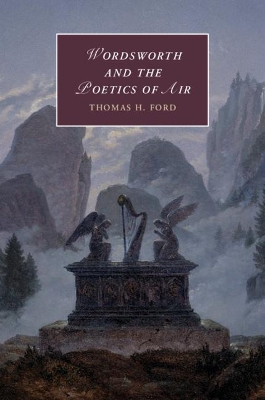Cambridge Studies in Romanticism
1 total work
Before the ideas we now define as Romanticism took hold the word 'atmosphere' meant only the physical stuff of air; afterwards, it could mean almost anything, from a historical mood or spirit to the character or style of an artwork. Thomas H. Ford traces this shift of meaning, which he sees as first occurring in the poetry of William Wordsworth. Gradually 'air' and 'atmosphere' took on the new status of metaphor as Wordsworth and other poets re-imagined poetry as a textual area of aerial communication - conveying the breath of a transitory moment to other times and places via the printed page. Reading Romantic poetry through this ecological and ecocritical lens Ford goes on to ask what the poems of the Romantic period mean for us in a new age of climate change, when the relationship between physical climates and cultural, political and literary atmospheres is once again being transformed.
